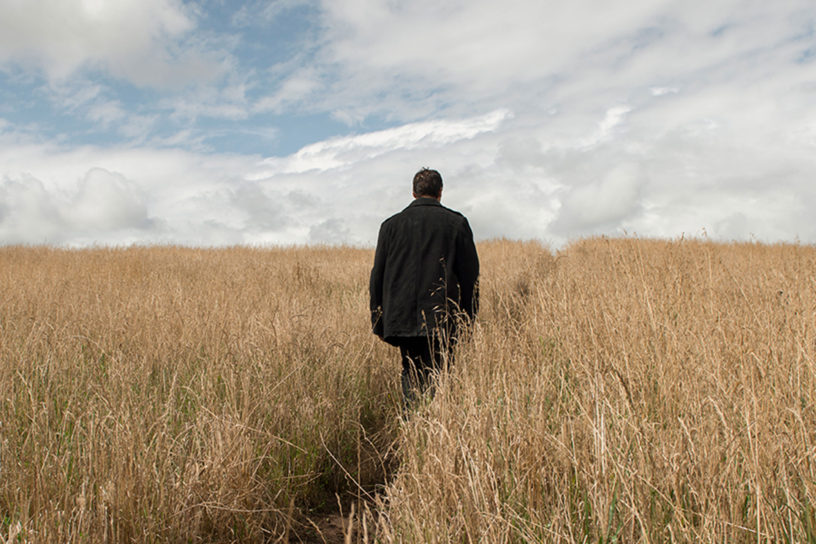By Anastasia Blosser
As director César Augusto Acevedo puts it, Horizonte is a film born out of desperation and a great sense of culpability. In just over two hours, it attempts to represent 50 years of civil unrest and generational suffering in rural Colombia referred to as “La Violencia.”
The plot follows a mother reconnecting with her long-lost son who was kidnapped as a teenager and forced to join a right-wing militia. The pair travel through the countryside as spirits in an afterlife and are forced to confront the atrocities her son committed while he was alive.
The two ghosts revisit children and pregnant women who were killed out of fear of a new generation of opposing militants. They encounter soldiers who “made death a party” and use heads as soccer balls. Despite this, Acevedo doesn’t use blood or gore to tell the story of gruesome, torturous deaths. Rather, the horrors of war are recounted by simultaneously overlapping multiple timelines into a singular, concrete storyline.
While the film made its world premiere at the 2024 Toronto International Film Festival (TIFF), Acevedo visited Toronto Metropolitan University to discuss Horizonte. He spoke with Spanish professor Enriqueta Zafra and criminology professor Joshua Price as part of a TIFF Talks series at TMU.
Answers have been edited for length and clarity. Acevedo’s responses have been translated from Spanish to English.
Why did you tell this story from the standpoint of a dead right-wing militant and his mother? What is the importance of the ghosts’ perspectives?
In Colombia, we have eight million victims of “La Violencia” and we had the idea to make a film that tells the story of these people who left us behind. The militants who victimize them are just as human as everyone else and have feelings. I wanted to make sure these people are not seen as mere statistics or numbers. The intention was to tell the story not from a historical, political or social point of view, but rather from a metaphysical and spiritual one.
In a world in which there’s a kind of cynicism that assumes there’s nothing to be done, that everything is already lost, this is a chance we have to recognize each other so we can possibly do something about it.
When you talked about this film, you said it participates in moral and material reparations. What do you mean by that? How do you think you accomplished that?
I believe that war destroys not only bodies but also spirits. It was important that the film doesn’t focus too much on the exact story and what happened in the past but rather on the reparations. It’s a humanistic message that we have the power to repair ourselves and to move forward. I did not want to make an inventory of the atrocities of violence. Instead, this was a chance for us to reflect, to learn and to think about “What was the meaning of all of these atrocities and how we can heal from it?”
There were certain lines in the film where the paramilitary ghost is told not to act like a victim. When he apologizes to a woman looking for her family, she says, “What good is an apology if you don’t tell us what we need to hear about the fate of our loved ones?” Could you elaborate on what you intended with these specific lines?
The victimizers are often asked for apologies but what good is it? What I need to know is the truth about the whereabouts of my relatives. There’s something sort of strange and unsatisfying about that moment. Forgiveness and reparation cannot happen without the truth.
I think the whole film was built around a feeling I’ve had most of my life. For many people in Colombia, it is that feeling of the unknown, feeling a little bit helpless towards not knowing how to get out of this war. We’re always being told that we’re supposed to have some kind of dialogue and that there’s supposed to be something that we’re going to get out of it. At the same time, there’s a kind of lack of hope and confidence in ourselves.
The film is about trying to tell everyone, “you have the responsibility to heal society.” We can overcome all of the things that have happened already and then we can transcend it somehow.
The film premiered at TIFF. What would you like an international audience to take away from this film?
The film is trying to convey what appears to be a very simple question of “What’s the sense of life in a country where there is so much war, so much death?” We do live in a world with war and genocide and no one is truly disconnected from that. I think it could be very dangerous if we actually believe that all this is far away from us. I think it’s important to understand that we have the power to destroy but we also have the power to heal.
With files from Maria Eula Faye Beltran
Sept. 25 Update: César Augusto Acevedo’s name has been updated to match the correct spelling.












Leave a Reply